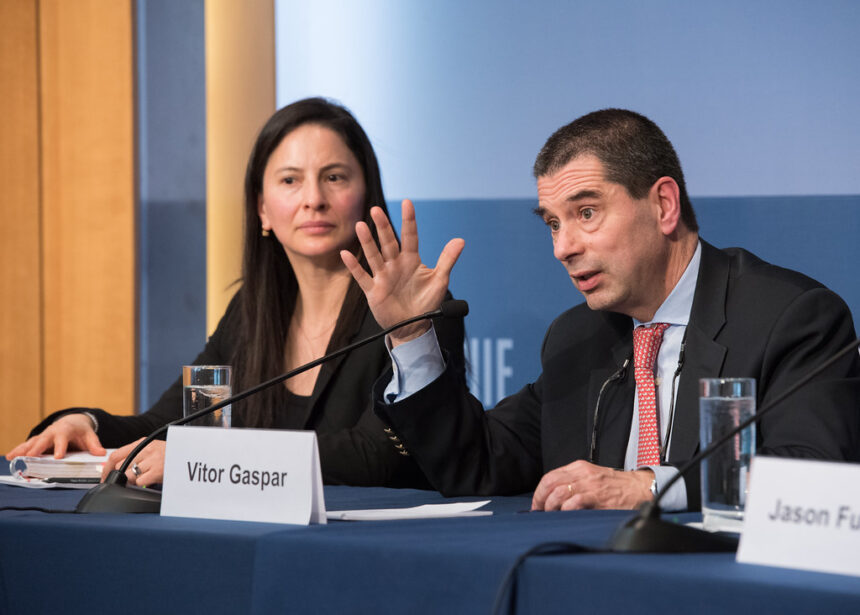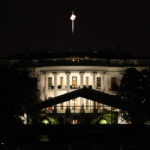The economic impact of the proposed tariff increases by former president Donald Trump has been a source of concern for analysts and economists. They have warned that this measure could increase inflation while reducing employment.
Trump’s tariff plans could have devastating consequences on the US economy as he campaigns to return to the White House.
Financial institutions have recently released studies that indicate that these tariffs would result in an increase in prices and the loss of jobs if implemented. This has sparked debates on whether such policies are sustainable in the long term.
Morgan Stanley: Inflation will rise and job growth will slow.
Morgan Stanley economists recently projected in a study that the US economy would suffer if a 10% global tariff was implemented, along with an astonishing 60-point hike on Chinese imports.
The team, led by Seth Carpenter the economist, noted in their research report “if tariffs were fully implemented we would expect a rapid acceleration of inflation and delayed growth in the GDP.”
Tariffs could push the average US tariff on industries between 25 and 35 percent, impacting approximately half the sectors in the US economy.
Morgan Stanley suggests such increases would result in a significant increase in inflation. The Federal Reserve’s preferred measure of inflation (the Personal Consumption Expenditures Price Index, or PCE price index) is likely to rise by 0.9 percent points over the next four quarters.
Economists believe that “the inflationary effects happens faster, when judging by history.” The rapid rise in prices may dampen the consumer’s spending, and further slow down economic growth.
Morgan Stanley also predicts that higher tariffs will negatively affect investment as well as consumption over several quarters.
It is estimated that the positive impact on GDP of decreased imports will not be enough to offset the negative effect from reduced domestic demand.
Payroll gains may fall up to 70.000 per month
Morgan Stanley’s economic model also predicts that job growth will slow down. It says monthly payroll increases, which averaged 184,000 jobs in 2024 could fall by between 50,000 and 70,000 per month, if tariffs are implemented.
Analysts stated that “the magnitude of the effect on the economy will depend upon the details.”
The timing and magnitude of the tariff increase, possible retaliatory measures from other countries, as well as the currency markets’ reactions, are all critical factors.
Brian Hughes, Trump’s campaign advisor, dismissed these dire predictions. He claimed that Wall Street fears were the same as those in 2016, when Trump proposed his first trade policy.
Hughes argued that Trump’s policies, both then and now, would fuel economic growth and lower inflation.
Peterson Institute predicts a decline in GDP
The Peterson Institute for International Economics also released a study stating that Trump’s tariffs and immigration policy could hurt US economic growth and increase inflation. It may even lead to job loss in the long term.
Their analysis suggests that even under a “low” scenario–where 1.3 million undocumented workers are deported and other countries refrain from retaliating–employment could drop by 2.7% by 2028, while inflation may reach 6% by 2026.
According to this scenario, consumer prices may be 20 percent higher in 2028 than baseline projections.
If we assume retaliatory duties and deporting 8.3 millions undocumented workers in a “high” scenario that is more extreme, the inflation rate could reach 9.3% and the GDP may drop by as much as 9.7%.
Peterson Institute warns these policies will create an inflationary surge and result in substantial job loss, especially for the agricultural and manufacturing sectors.
Tariff policies: Long-term risk
Report also expresses concern over the possible erosion of Federal Reserve Independence, which may lead to “permanently high inflation” and price instability.
According to Peterson Institute findings, US consumer price estimates could increase by 41% in 2040 compared with current baseline estimates.
The alarming projections highlight the risks of aggressive tariffs, restrictive immigration policies and other economic measures. They urge policymakers to examine the implications on the economy.
The post Trump’s proposed tariffs could cause an economic recession: Analysts predict higher inflation, job losses and may be updated as new developments unfold.
This site is for entertainment only. Click here to read more






